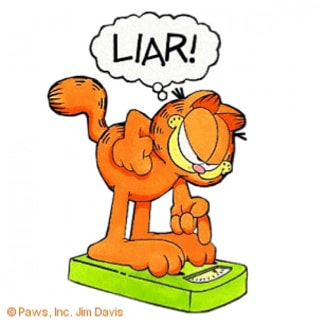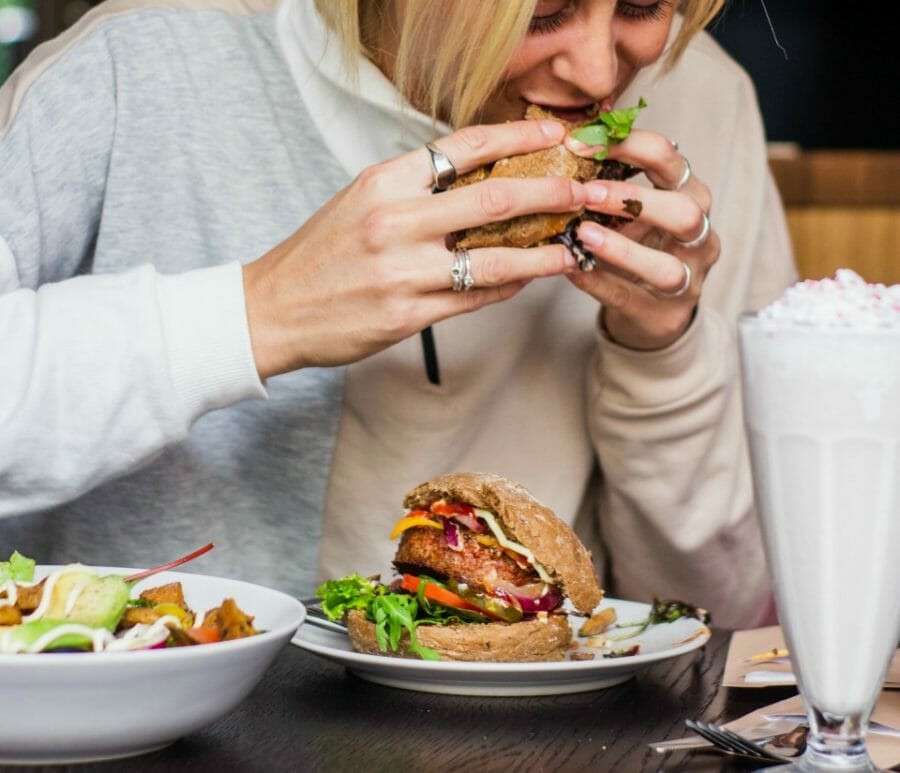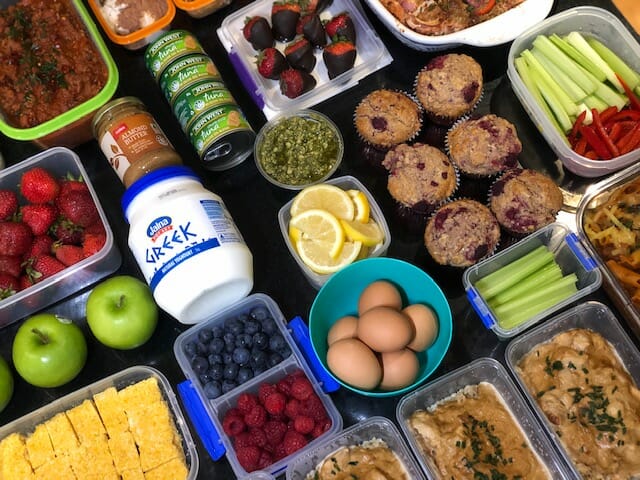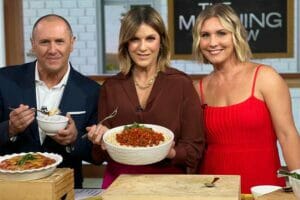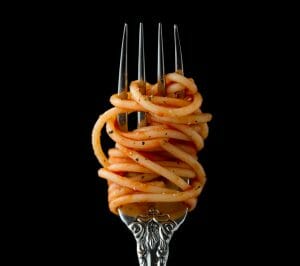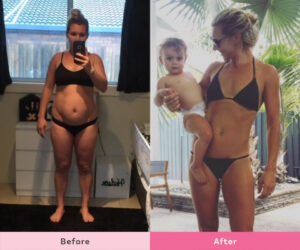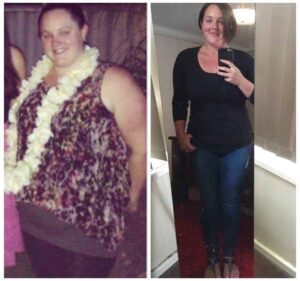Why Am I Not Losing Weight
Everyone loses weight differently – for some mums when they start their weight loss journey the weight will drop off easily, while for others it can be a struggle.
We all have different shapes and different metabolisms, but that doesn’t stop us from feeling frustrated when our weight loss slows down.
If you’re feeling frustrated with what the scales are telling you, take a look below – we’ve got some hints and tips as to why the scale might not be going down and how you can get it moving again – and how of course The Healthy Mummy plans can help too.
You might have gained lean muscle – not fat
If you’re exercising, you might not have lost weight simply because you’ve gained muscle. Lean muscle is heavier and denser than fat, so when you weigh yourself, the scales might have gone up – despite the fact that you may have lost fat and gotten thinner.
Any exercise that builds lean muscle, such as running, weight training or even pilates could cause this “weight gain” – but it will also make you slimmer.
Try not to look at the numbers on the scale and instead, measure yourself so that you can get an idea of your actual size and shape, rather than your actual weight. You might be slimmer, but you might weigh more – but in the end, what’s more important? If you have muscle, you’ll be healthier. If you have more fat, you’ll be more prone to a number of diseases and illnesses.
You could be eating too much
At the end of the day, you might not be losing weight because you’re eating too much. Very simply, if you put more calories in than you need, or if you don’t burn off some of those calories, you will gain weight or maintain your current weight. If you want to shed the pounds, you need to take in fewer calories than you need, or you need to burn off some of the calories that you take in – or both.
We can’t tell you how many calories you should eat, as this depends on loads of things. If you work out your basal metabolic rate, or your BMR, this will tell you how many calories you need to eat to stay the same. Your BMR is based on things like your weight, height, age, sex and whether or not you are breastfeeding, and everyone’s BMR is different.
When you know your BMR, you can then know how many calories you should be taking in in order to lose weight, rather than maintain it. Once you know this, making small changes in the way that you eat, the types of foods you eat and the amount of food you eat could kick-start your weight loss. You can use our BMR calculator to works yours out here
You might have a slow metabolism
The slower your metabolism, the more slowly your body will use the calories that you put into it. You can boost your metabolism by exercising before eating, at the beginning of the day, by weight training, and by eating small meals and snacking.
You might not be snacking frequently enough
Snacking is actually really important for weight loss. If you snack, you’ll boost your energy levels, which is super important for exercising. Healthy snacks will also give you plenty of vitamins and nutrients, making you feel healthier. Snacks will also boost metabolism, as every time you eat, your metabolism gets a little boost – enabling you to burn off calories more quickly.
When you’re snacking, make sure that you include those snacks in your daily calorie count. Failure to do this – or if you choose unhealthy, processed snacks – could cause you to gain weight rather than lose it. Instead, try foods like raw fruit and veg, hummus, yoghurt, oily fish, whole grain toast, peanut butter or low fat cottage cheese.
You might not be eating enough protein
Protein is essential for general health – it helps build lean muscle, improves recovery after exercise, boosts metabolism and helps you to stay full for longer. The more lean muscle you have, the more calories you burn at rest – so protein really is essential. We recommend having some with every meal and snack – just make sure it’s lean, or low fat if you’re a vegetarian.
You could have water retention

Bloating, cramps, water retention, mood swings, cravings for chocolate and weight gain. Sound familiar? Could be your time of the month – and this could be why you’re not losing any weight. Many women experience water retention while they are on their period and this could cause them to stay the same weight wise, or even to gain weight.
Because of this, we recommend not weighing yourself when you know you’re on your period. It will make you feel a little bit angry and resentful, so skip the weigh-in until your time of the month is over.
You might have PCOS
PCOS causes weight gain in women because it causes fluctuations in hormones, meaning that the body has more difficulty in using insulin. Because the body has difficulty in using the insulin, this creates a condition known as insulin resistance. Because the body cannot use insulin properly, glucose and sugar have a tendency to build up in the bloodstream. And the body then releases a hormone to combat this, known as androgen.
The androgen hormone in turn can cause weight gain, as a general side effect of the hormone, along with hair growth and acne in some sufferers. Because women with PCOS can have high levels of androgen, it’s thought that this has a big part to play in weight gain.
Women with PCOS need to look after their health, and keeping their blood sugar levels stable and steady – rather than rushing straight into a low cal diet. Focus on things like eating a healthy, well-rounded diet – choose foods like fruits, veggies, whole grains, lean protein and fibre. Steer clear of white pasta and white bread as they cause fluctuations in blood sugar, which in turn will cause insulin resistance and the release of androgen.
It’s very important for women with PCOS to eat little and often, too, as this prevents spikes and dips in their blood sugar levels. As with any other diet and exercise regime, it’s important to do plenty of exercise – it’s generally recommended that you do 5 sessions of 30 minutes every week as this will help you burn off more calories and it will also boost your metabolism. If you have PCOS, follow a diet and exercise regime and don’t lose any weight, you should speak to your doctor – you might need to take some medication.
You might have an allergy
If you are doing everything right – and if that means doing absolutely everything right – eating well, exercising often and not cheating, it might be that you have a food allergy. Allergies can sometimes cause weight gain and bloating, and an allergy like gluten or wheat could cause these side effects. If you think you might have an allergy, see your doctor.
You could have hit a plateau
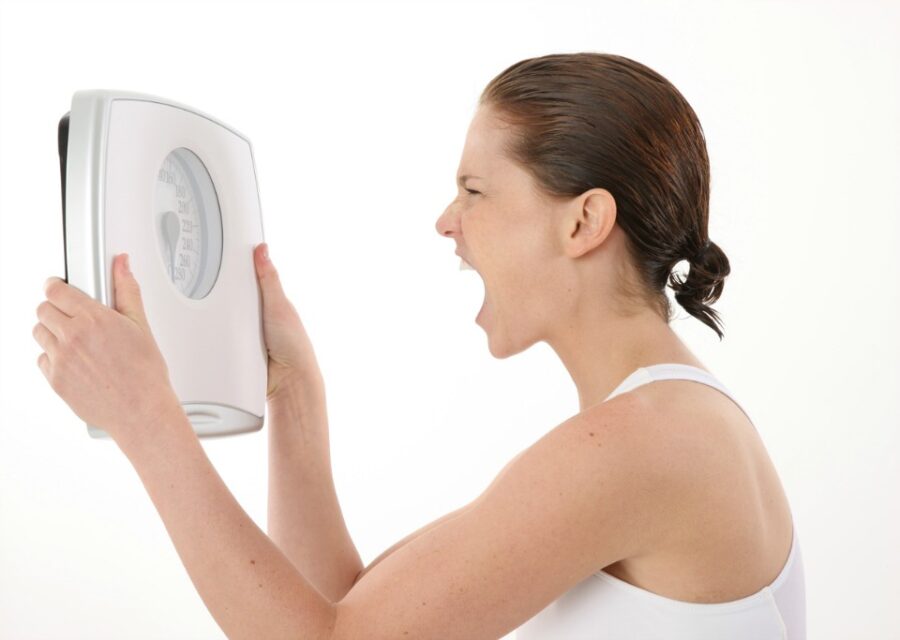
If you’ve been vainly trying to lose weight but seem to have gotten stuck in a rut, or if you only have a few kg to go, you might need to overhaul what you eat in order to get the results you want. That might mean changing your diet a little or changing the types of food you eat, or increasing your exercise.
Need to stock up on Healthy Mummy Smoothies? Then see our shop here
Are you ready to become a Healthy Mummy?

